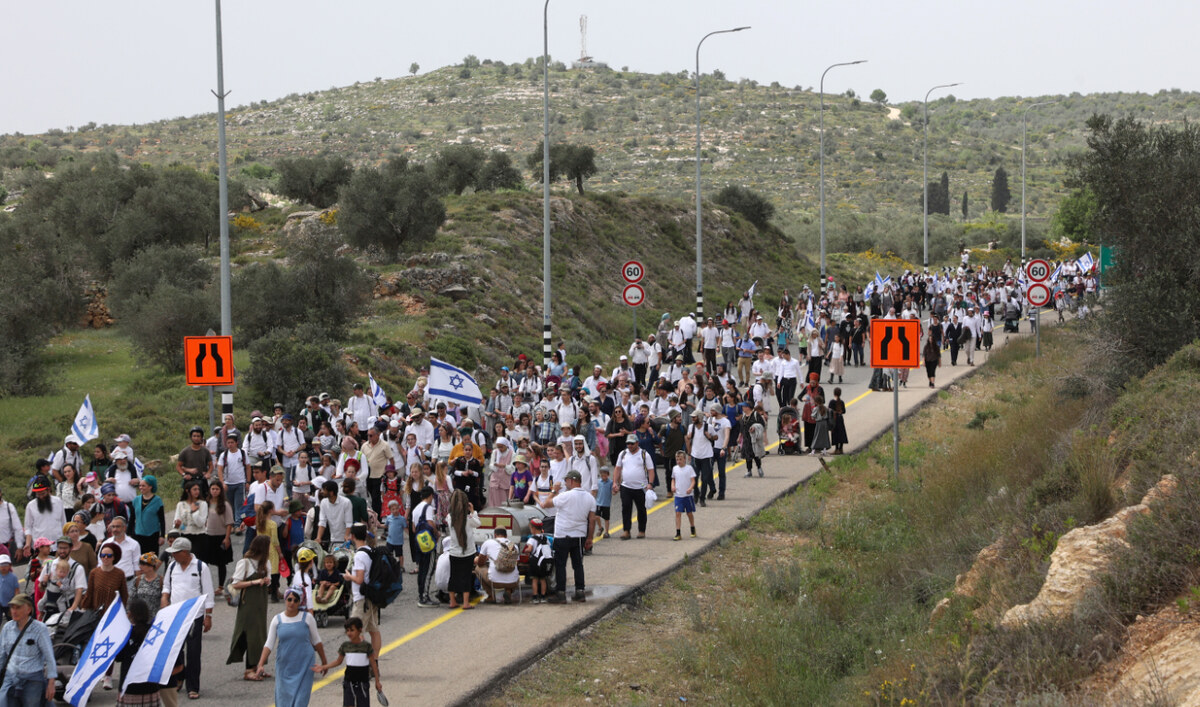BEIRUT, Lebanon: Israeli Prime Minister Benjamin Netanyahu on Monday vowed to hit Hezbollah without mercy, a day after the Iran-backed Lebanese group’s deadliest strike on Israel since the start of the war in late September.
Hezbollah’s drone attack on an Israeli base killed four soldiers on Sunday, while volunteer rescuers said another 60 people were injured.
“We will continue to mercilessly strike Hezbollah in all parts of Lebanon — including Beirut,” Netanyahu said on a visit to the base near Binyamina, south of Haifa.
Hezbollah said it launched the “squadron of attack drones” in response to Israeli attacks, including one last week that Lebanon’s health ministry said killed at least 22 people in central Beirut.
Since Israel on September 23 escalated its bombing against targets in Lebanon the war has killed at least 1,315 people, according to an AFP tally of Lebanese health ministry figures, though the real toll is likely to be higher.
Prior to Netanyahu’s comments, new air strikes had already occurred against targets around Lebanon, including one in a northern Christian-majority village which killed at least 21 people on Monday, according to the health ministry.
Hezbollah said on Monday around midday that it had launched rockets at a naval base near Haifa before a further “big rocket salvo” in the early evening at the northern Israeli town of Safed.
Its fighters were also “engaged in violent clashes” in the Lebanese frontier village of Aita Al-Shaab, and were fighting elsewhere as well, it said.
Air raid sirens sounded across central Israel in the early evening, including in the commercial hub of Tel Aviv, the military said, after it earlier reported the interception of two drones approaching from Syria.
After almost a year of tit-for-tat exchanges between Hezbollah and Israeli forces over the Lebanon border, Israel intensified its strikes against targets in Lebanon late last month before sending ground troops across the frontier.
Israel wants to push back Hezbollah in order to secure its northern boundary and allow tens of thousands of people displaced by rocket fire since last year to return home safely.
Hezbollah says its strikes are in support of Palestinian militants Hamas who attacked Israel on October 7 last year, triggering the ongoing war with Israel in the Gaza Strip.
The International Organization for Migration said last week it had verified 690,000 people displaced by the war in Lebanon.
Israel’s deadly air strike on the village of Aito in northern Lebanon on Monday marked a departure from the usual pattern, being located in a mostly Christian area and far from areas usually bombed.
Israel has focused its firepower mostly on Hezbollah strongholds in Shiite Muslim-majority areas, including in Beirut’s southern suburbs.
An AFP photographer in Aito said the strike levelled a residential building. Body parts were scattered in the rubble.
In the southern border town of Marjayoun, civil defense chief Anis Abla told AFP his rescue teams were exhausted.
“Our rescue missions are becoming more and more difficult, because the strikes are never-ending and target us,” he said.
The International Committee of the Red Cross’s regional director, Nicolas Von Arx, appealed for the protection of ambulances and other health facilities and personnel.
“Attacks on health facilities are deeply worrying,” he said.
Israel faced new criticism over injuries and damage sustained by the UN peacekeeping force which has been deployed in Lebanon since 1978 after a previous Israeli invasion.
Netanyahu on Monday said Israel’s military “is doing its utmost to prevent such incidents” and repeated his request that the peacekeepers “get out of harm’s way.”
UNIFIL has refused.
Prime Minister Simon Harris of Ireland, which has troops in the UNIFIL mission, on Monday told Israeli President Isaac Herzog in a phone call that UNIFIL has “a clear mandate from the Security Council, and that it must be allowed to carry out its functions unimpeded,” Harris’s office said.
The Hamas attack on Israel last year which triggered war in Gaza resulted in the deaths of 1,206 people, mostly civilians, according to an AFP tally of official Israeli figures.
The number includes hostages killed in captivity.
Israel’s retaliatory military campaign in Gaza has killed, according to the health ministry in the Hamas-run territory, 42,289 people, the majority civilians. The UN has described the figures as reliable.
Since the Gaza war began hundreds of Palestinians have also been killed in the occupied West Bank. On Monday Palestinian officials said Israeli forces killed two more during a raid. Israel said it was “looking into the reports.”
In Gaza, despite escalating Israeli military operations in central and northern areas, the second round of a polio vaccination campaign for hundreds of thousands of children began on Monday.
With the war there, and in Lebanon, showing no sign of abating, fears of even wider regional conflict have seen Iran, which backs Hezbollah and Hamas, engage in diplomatic efforts with allies and other powers.
Iranian Foreign Minister Abbas Araghchi met a senior official from Yemen’s Iran-backed Houthi movement in Oman, his latest stop on a regional diplomatic tour.
Jordan’s King Abdullah II warned of “a regional war that will be costly for everyone,” during a meeting with Lebanon’s Prime Minister Najib Mikati on Monday.
Israel is still weighing its response to an October 1 missile attack by Iran, the latest of two it has carried out against Israel this year.





































